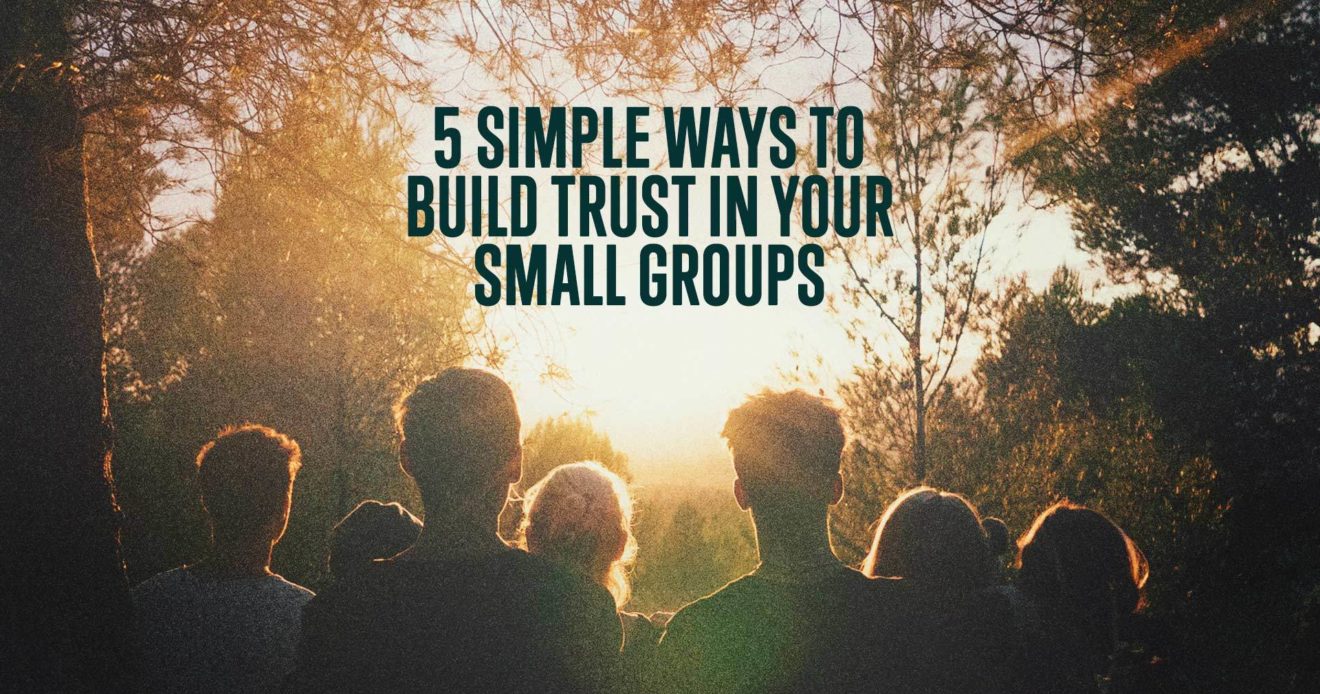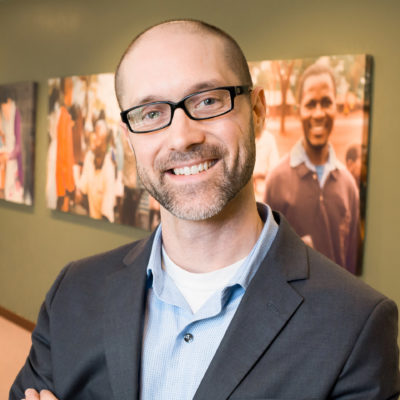
5 Simple Ways to Build Trust in Your Small Groups
Building strong student leaders has always been one of my favorite things to do in youth ministry. There is just something special about watching students grow into the person God created them to be, to connect with others using their gifts, lead others, and to be lead by Christ—but not without my fair share of immense challenges. I have lost countless hours of sleep agonizing over students' choices and behaviors. I may have lost count of the number of successes I had the pleasure of sharing, but I still remember every defeat.
Yet in every challenge, the hardest of those is creating a strong bond of trust among students—getting a small group of students (in any context) from different ages, friend groups, talents, etc., and getting them to rely on each other. We talk about the importance of community, the necessity of relationship in discipleship, yet we place a bunch of insecure students in a room and somehow hope that magically they will talk to each other, answer deep, profound questions, and miraculously be spiritually transformed. And then at the end of the year scratch our heads wondering what went wrong.
Well, wonder no longer. Over the years, I think I have tried every trick in the book. Some worked, most didn't. But here is my top five. Implement these and I have no doubt your small groups will begin to be transformed. Trust is not a magical formula; it is built—brick by brick.
Personality testing.
Have your students take a simple Meyers-Briggs personally test. Why? Because personality tests reveal incredible information about your students—but not just for themselves, but each other and you. One year I inherited a student group designed to lead the school in a few different capacities. The problem was that the person who assembled the group did not take in consideration personality conflicts. None of the girls in the group got along. Why? Because they were all the same. I needed them to see that and learn how to work together.
Once they took the test, I assembled all the results in a binder, handed them to each student, and we discussed them. They were amazed at how similar they all were. Just by understanding their personalities gave them insight into who they were and the others on the team. I even talked about my personality. Those girls, now years later are still close friends.
Icebreakers…
They really work—when you do them right. I have never been a huge fan of these, but out of necessity, I started doing what is commonly known as Two Truths and a Lie. It is a simple way to create a closer, more trusting environment. But there is the trick to making icebreakers more productive. Pick one or two, stick with it, and stretch it out. For example, I wouldn't do Two Truths and a Lie just once and then be done. The effects would be long forgotten. If I had 10 or 12 students, I would do it once a week with one student. It gives them time to think about it, make it more difficult for each other, and so much more fun. The key is to be prepared, be consistent, and have a clear purpose.
Sharing, even on a simple level builds a safe place to be real and authentic. Safe spaces create a stronger community. A stronger community builds greater trust. Therefore opening doors for deeper conversation, deeper relationships, and greater growth in your students. Give it time, always works.
Play together.
It is hard to explain, but there is something about just having fun together. Take one day every few months and don't have an agenda. Just play. Hang out. Eat together, laugh, or watch a movie. So much of community and trust is built in our natural spaces when we lose the agenda because in these kinds of moments we are most vulnerable, most open, and the most authentic. You will accomplish more in a kitchen over a pile of chips and guacamole for an evening than months sitting in a circle of chairs is sterile church classroom or breakout space.
But to do so means you may have to put content aside for a night and just hang out. For some of you diverting from the task at hand takes considerable discipline and effort, but well worth the payoff in the end. Just remember it may require you get involved in the fun. Over the years I have learned silly handshakes, inside jokes, and even a dance or two.
Problem solve together.
I had a student with this brilliant idea to create a body suit designed to light up to make a person look like a stick figure. I was convinced he was crazy. But I also thought it was a great idea for a drama we were planning for our fall retreat. So I let them get all the supplies and built the prototype before we left for camp. When we arrived at camp, the suits would not work. I have never seen a more determined student. The team and I stayed up with this student until well after 3 am working to solve the problem. We never did. But it was one of the closest teams I have ever worked with.
It is incredible the trust that is built when people are tired, stressed, and slightly anxious. It will often bring out the ugly, but it is in the conflict people learn to rely on each other.
Be transparent.
One of the most influential tools you have as a youth leader is experience. Regardless of what students may say or the eye rolls, you will get when you launch into the famed, "when I was your age…” students respect your experience. Anytime I am talking about issues of sin, struggles of everyday life, etc., I always (with discretion of course) share alongside my students. I can't really explain the why behind the what, but there is profound power in letting students know that you are not invincible and that despite the facade you may put in front, you don't have it all figured out.
Admit when you make a mistake. Let them know that you have things you are working on as well. Tell stories of how you failed—not just as a teen, but recently. Vulnerability and transparency build stronger groups because it helps to solidify trust. It sounds a little silly, but it makes you more human to those you are trying to reach. It makes you more relatable. After all, isn’t that one of the chief reasons God came as his creation?
Building strong small groups is not easy, and it will never happen on accident. You have to plan for it, work at it, and shoot for the long-term gain. There is no overnight quick fix kind of solution here. Keep pouring into them. It will change their lives and yours.
Steve Kozak
Executive Director of AwanaYM
Steve currently serves as the Executive Director of AwanaYM. Previously, Steve spent over a decade teaching high school theology and apologetics from Detroit to LA. Steve holds a Masters degree in Theology from Moody Theological Seminary and a Masters in Christian Apologetics from Biola University. Steve is also an adjunct professor at Trinity International University. He speaks and writes on youth ministry, youth culture and apologetics. He resides in Chicago, IL with his wife and four children.FollowSteve Kozak on Twitter: stevenmkozak
Comments
Get the AwanaYM Update
Receive youth ministry resources in your inbox. Subscribe today!
